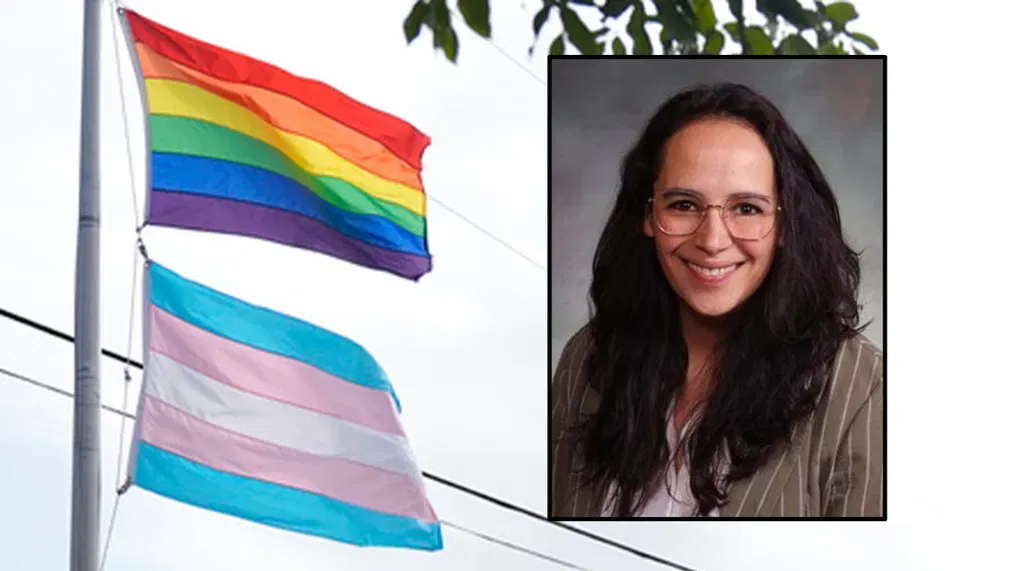By Ryan “Dickie” Thompson, The Punk Rock Libertarian
Introduction: From Mourning to Mandates
In the wake of the tragic Club Q shooting in Colorado Springs on November 19, 2022, where five individuals lost their lives and 25 others were injured, the state of Colorado has enacted House Bill 25-1312, known as the “Kelly Loving Act.” Named after one of the victims, this legislation aims to protect transgender individuals by addressing issues like misgendering and deadnaming in legal contexts. However, the bill has sparked significant debate over its implications for free speech and parental rights.
The Kelly Loving Act: A Closer Look
The Kelly Loving Act introduces several provisions:
- Coercive Control in Custody Cases: The bill expands the definition of coercive control in child custody decisions to include actions like misgendering, deadnaming, or threatening to disclose an individual's gender-affirming healthcare. Courts are now required to consider such actions when determining the best interests of the child.
- Non-Recognition of Out-of-State Laws: Colorado courts are prohibited from enforcing laws from other states that penalize parents for allowing their children to receive gender-affirming care.
- Public Accommodation Protections: The bill amends the Colorado Anti-Discrimination Act to classify misgendering and deadnaming as discriminatory acts in places of public accommodation.
While the intention behind the bill is to protect transgender individuals from discrimination, critics argue that it infringes upon free speech and parental rights.
The Irony of the Club Q Shooter's Identity
Adding complexity to the narrative is the identity of the Club Q shooter, Anderson Lee Aldrich. During court proceedings, Aldrich's defense attorneys stated that Aldrich identifies as nonbinary and uses they/them pronouns. This revelation challenges the initial portrayal of the shooter as an anti-LGBTQ bigot and raises questions about the motivations behind the attack.
Despite this, Aldrich pleaded guilty to multiple counts, including hate crimes, and was sentenced to life imprisonment.
Media Narratives and the Suppression of Complexity
The mainstream media's handling of the Club Q shooting and the subsequent legislation has been criticized for oversimplifying complex issues. The initial narrative painted the shooter as a right-wing extremist targeting the LGBTQ community, a portrayal that became more complicated with the revelation of Aldrich's nonbinary identity.
This tendency to fit events into predetermined narratives can hinder a comprehensive understanding of incidents and their underlying causes. It also raises concerns about the media's role in shaping public perception and policy.
Personal Reflections: The Cost of Misrepresentation
As someone who has long stood against racism and bigotry, I have experienced firsthand the consequences of misrepresentation. At 17, I tattooed “S.P.E.A.R.” (Skins and Punks Everywhere Against Racism) on my chest, symbolizing my commitment to anti-racism. Despite this, some have attempted to label me as a Nazi, ignoring the context and evidence of my beliefs.
Reference the movement that I started S.P.E.A.R over 30 years ago
This tactic of character assassination is not unique to me. It reflects a broader societal trend where individuals are vilified to discredit their perspectives, often to advance specific agendas. Such actions not only harm individuals but also stifle meaningful discourse.
As if the common tactic of legacy news outlets, it is always best to frame all of the people they do not like as worse by far than the people they do like.
Such is the tactic in calling Trump and Elon Musk “Nazi's” or “literally Hitler”.
As Greg Gutfield notes on his monolouge on May 28th 2025, and says “calling trump “hitler” made all actions against him “morally required”, says Greg Gutfield “
https://www.facebook.com/share/v/1AqjuCac2d/
The Broader Implications: Balancing Protection and Freedom
While the protection of transgender individuals from discrimination is a legitimate concern, legislation like the Kelly Loving Act must be carefully scrutinized to ensure it does not infringe upon fundamental rights. The bill's provisions raise questions about the balance between safeguarding individuals and preserving freedoms such as speech and parental authority.
Moreover, the use of tragic events to justify expansive legislation can set a precedent where emotional responses override rational policy-making. It's essential to approach such issues with both compassion and a commitment to upholding constitutional principles.
Conclusion: Advocating for Liberty and Truth
The aftermath of the Club Q shooting and the enactment of the Kelly Loving Act highlight the complexities of addressing discrimination while preserving individual freedoms. As a society, we must strive to protect vulnerable communities without compromising the rights that form the foundation of our democracy.
It's imperative to engage in open, honest discussions about these issues, resisting the urge to simplify or politicize tragedies. Only through such discourse can we develop policies that are both just and respectful of all individuals' rights.
References and Sources
- Colorado General Assembly. (2025). House Bill 25-1312. Retrieved from https://leg.colorado.gov/bills/hb25-1312
- AP News. (2022). Defense: Colorado gay club shooting suspect is nonbinary. Retrieved from https://apnews.com/article/crime-shootings-colorado-gun-politics-denver-766baba4c80bb470eba9e6146c7b42aa
- LA Times. (2022). Glimpses of troubled life of Club Q mass shooting suspect. Retrieved from https://www.latimes.com/california/story/2022-11-23/colorado-springs-shooter-mystery-remains
- City Journal. (2025). In Colorado, “Misgendering” Your Kid Could Lose You Custody. Retrieved from https://www.city-journal.org/article/colorado-kelly-loving-act-child-gender-pronouns
- America First Policy Institute. (2025). Analysis of House Bill 25-1312: Legal “Protections” For Transgender People. Retrieved from https://americafirstpolicy.com/issues/analysis-of-house-bill-25-1312-legal-protections-for-transgender-people
- The Guardian. (2024). Colorado Springs LGBTQ+ nightclub shooter sentenced to 55 life terms in prison. Retrieved from https://www.theguardian.com/us-news/article/2024/jun/18/club-q-shooting-sentencing-anderson-lee-aldrich






